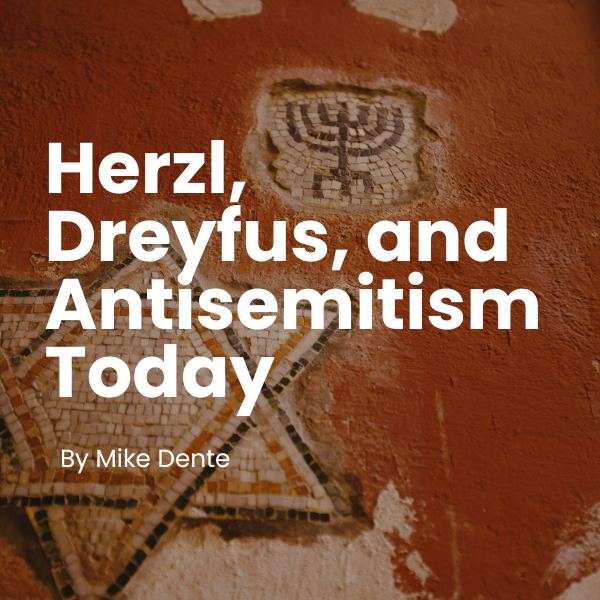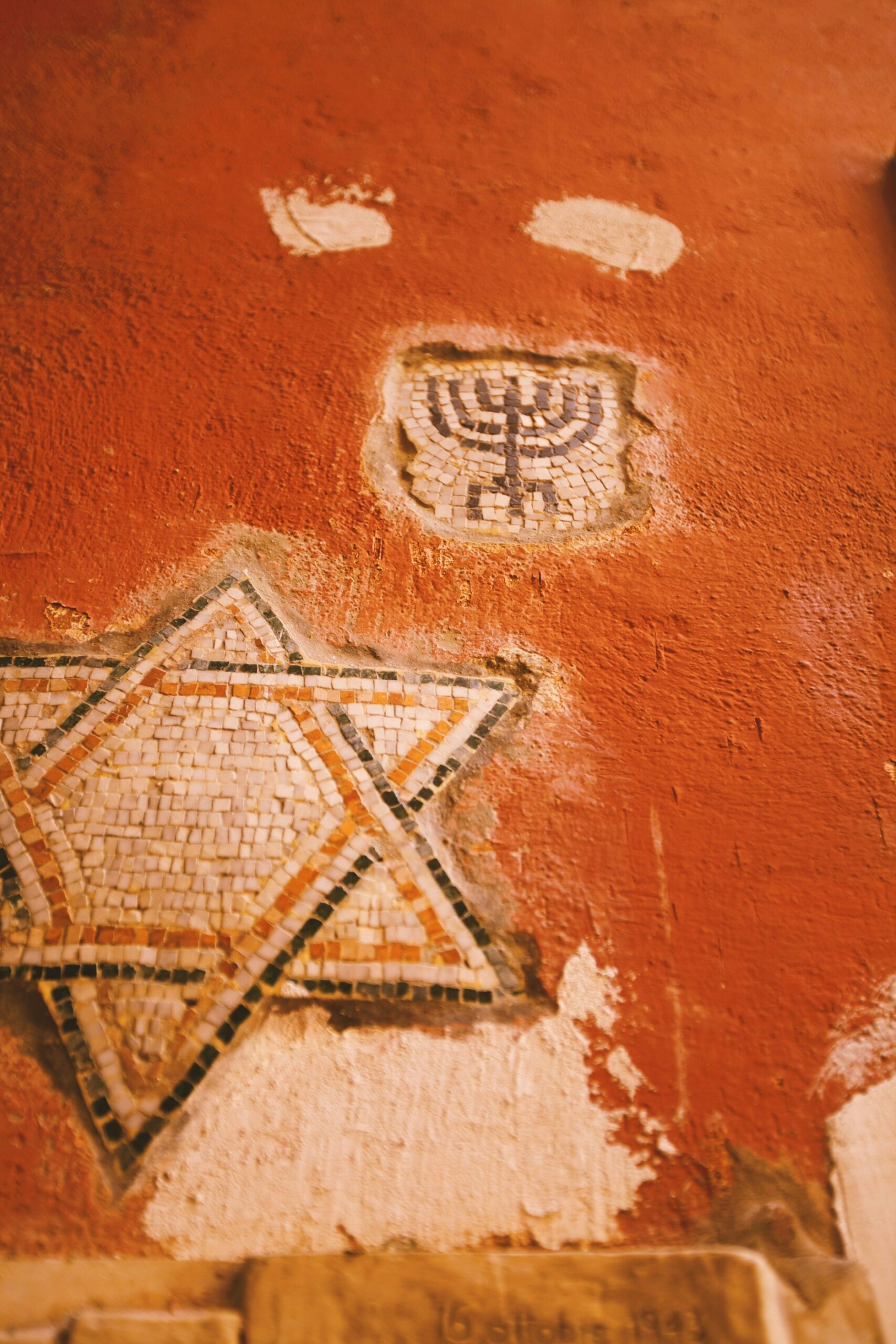
There’s been much written and discussed in the past few months about antisemitism. On the day I sat down to write this, in the news, there was yet another horrific example played out in a criminal act against a young person in a local school in our area. When we consider how long this has been happening, we want to cry out with Psalm 69, “More in number than the hairs of my head are those who hate me without cause (4)…You who seek God, let your hearts revive. For the Lord hears the needy and does not despise his own people who are prisoners (32b-33).”
Much of what I’ve read in articles recently has been positive in bringing awareness to an age-old evil that still plagues our world. That said, I’ve noticed that lines can get blurred between the State of Israel and Jewish people in some of the more heated debates. I support the State of Israel, and I pray continuously for this current conflict to end and for all the hostages to be returned. Lately, I’ve seen much done or said to Jewish people that are in no way connected to the State. With that in mind, I’d like to talk about antisemitism and use a definition from the Jerusalem Declaration of Antisemitism, which denounces “discrimination, prejudice, hostility, or violence against Jews as Jews (or Jewish institutions as Jewish).”[1] To illustrate, I’d like to share a story from January 5, 1895, when two Jewish men, whose lives changed history, crossed paths but didn’t meet.[2]
Austrian journalist Theodor Herzl was a correspondent for Neue Freie Presse in Paris. On that January day, he covered a breaking story of a certain army captain, Alfred Dreyfus, who was convicted of espionage, selling his country’s secrets to France’s enemies. Although Dreyfus maintained his innocence, he was publicly disgraced, defrocked, and exiled. Later, another investigation proved his innocence, and he was brought into the public eye in 1898 by Emile Zola, who wrote an open letter to the government in the newspaper Aurore called “J’accuse” (I accuse).[3] Eventually, Alfred Dreyfus was reinstated to his position, and all charges brought against him were dropped.
What troubled Theodor Herzl so profoundly wasn’t just the lack of solid proof or the hasty conclusions of the judicial system. It was the onlookers at Dreyfus’s defamation chanting “Death to Jews.” It became clear to him that this wasn’t really about national security. To understand how deeply this moved Herzl, we must remember that for Europeans then, France was the defender of the Rights of Man, guaranteeing freedom from such abuses. And yet, Herzl saw that, once again, the dark forces of antisemitism were pushing the Jewish people out. This event inspired him to begin his life’s work, earning him the name of the father of Zionism.[4] As in the case of the Dreyfus affair, antisemitism was alive and well before there was a State of Israel. To quote the Jerusalem Declaration of Antisemitism and its 210 scholars, “Criticizing or opposing Zionism as a form of nationalism…Evidence-based criticism of Israel as a state”[5] is not considered antisemitic. What drove Herzl to find a solution for Jewish people in the ancient land was.
Sadly, as early as Gregory 1st in 600AD,[6] Christendom was responsible for the persecution of Jewish people. Crusades, forced conversions, inquisitions, pogroms, and ghettos…not to mention marginalization and stereotypes, have circulated throughout our history. Thankfully, there’s been repentance by the Christian community. Vatican II saw the evils of its past conduct and sought reform.[7] Protestants, in many different ways, also sought to repair the damage done and build a new path forward. One of the ways has been the support for Israel. Still, I fear that there’s been a transference in the collective evangelical non-Jewish mind of the State of Israel and its legal right to existence to our Jewish next-door neighbor who has lived with Jewish jokes and stereotypes his whole life. To take it the next step, I wonder sometimes if our insistence to the right of Israel’s existence as an end times cure in the present for antisemitism, might not in some cases be an indirect or perceived pushing away of the suffering person next to us. What I mean is, if our message to a suffering person is to encourage them to move to a foreign country or to proclaim our support for that same foreign country, have we comforted them as individuals made in the image of God?
I’m reminded of a few critical conversations I’ve had with our friends at Jews for Jesus. The first one is Joshua Turnil, the director of the Paris branch, and the other is Jacques Guggenheim, a Jewish believer, pastor, writer, and artist who, as a child, escaped the Holocaust. Joshua has often said that withholding the gospel from a Jewish person is the worst form of antisemitism. It cuts them off from knowing Jesus. Over the years, I’ve seen his point lived out through well-meaning Christians encouraging Jewish people to make “Aliyah” (immigrate to Israel) and never get around to sharing Jesus. My second example is Jacques Guggenheim, who was taken as a child to Switzerland to live with a Christian family during the war. Although traumatized, what melted his heart was how that family shared their lives, meals, Bible reading, and prayers through their love for Jesus.
In the examples of Joshua[8] and Jacques, I see a way forward anchored in the gospel. Rather than looking for a solution that includes sending people away, we might consider opening up and sharing our lives with them here and now. If the underlying problem is antisemitism, we, who the gospel has transformed, are well-positioned to show love. We remember how Jesus was discriminated against, shamed, and abused to take away our guilt. He, therefore, can enter into the lives of hurting people through the transformed lives of those of us who are so privileged to be His agents of comfort. If we live like this, we’ll have a place to share our hope. I wonder if this might not be a more powerful arm against antisemitism and other forms of racism. This is especially true in these last days, as we look forward to the day when we’ll all come to the New Jerusalem, where the Lamb is its Temple, and live in the harmony we know we were truly meant to experience.[9]
Footnotes
[1] https://jerusalemdeclaration.org/
[2] https://www.crif.org/fr/actualites/crifalfred-dreyfus-lantisemitisme-de-laffaire-dreyfus-un-point-decisif-pour-le-projet-sioniste-de-theodor-herzl
[3] https://www.retronews.fr/justice/echo-de-presse/2018/01/10/lisez-le-jaccuse-de-zola
[4] https://www.cjh.org/lapidus/Herzl.html
[5] https://jerusalemdeclaration.org/
[6] https://www.ushmm.org/research/about-the-mandel-center/initiatives/ethics-religion-holocaust/articles-and-resources/christian-persecution-of-jews-over-the-centuries/christian-persecution-of-jews-over-the-centuries
[7] http://www.christianunity.va/content/unitacristiani/en/commissione-per-i-rapporti-religiosi-con-l-ebraismo/commissione-per-i-rapporti-religiosi-con-l-ebraismo-crre/documenti-della-commissione/en.html
[8] Joshua just shared an excellent article from Jews for Jesus if anyone is interested in reading more: https://www.jewsforjesus.org.au/articles/christians-your-jewish-friends-are-not-okay
[9] Revelation 21-22







